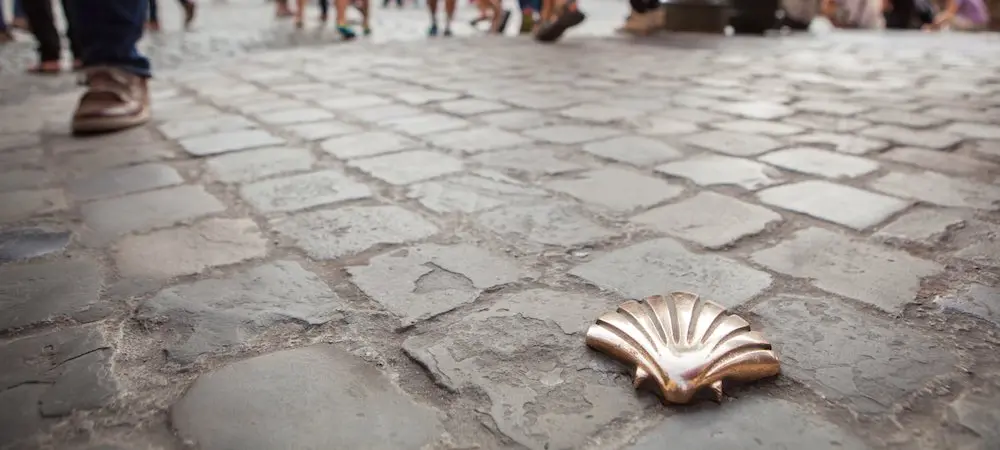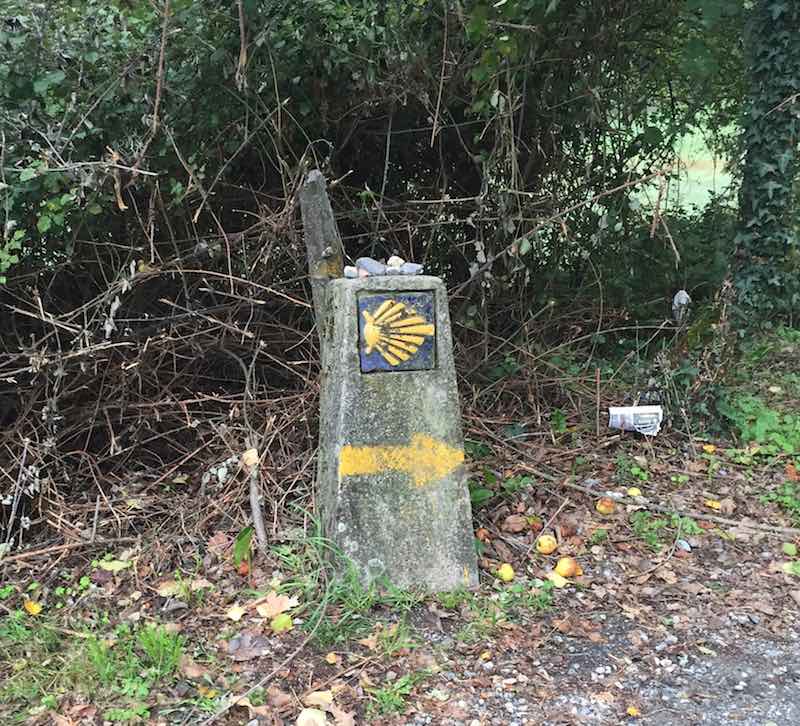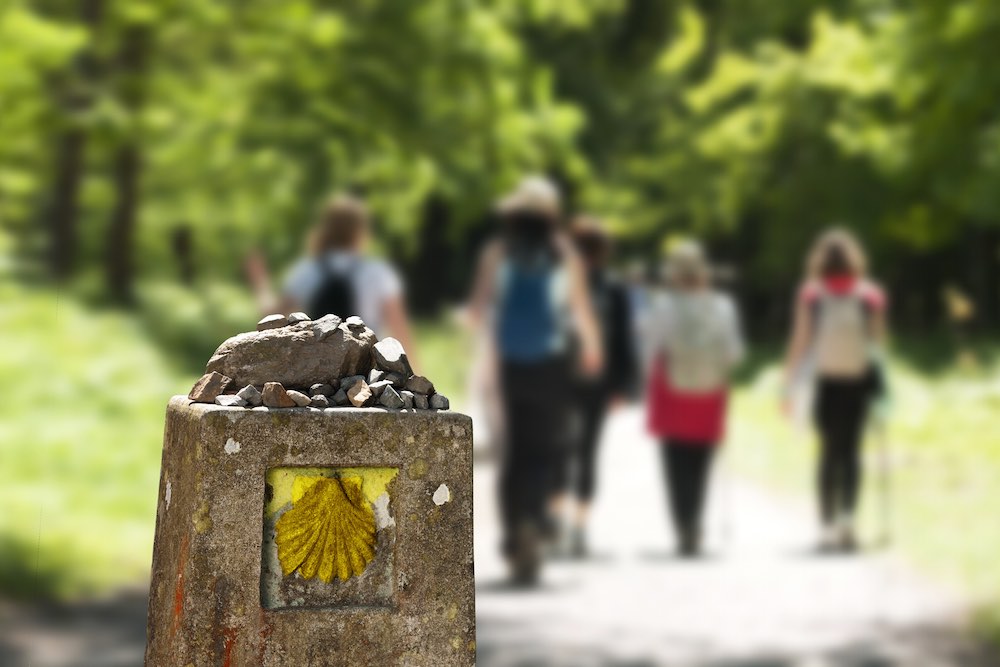
“You do you”
This phrase is popular amongst younger generations and in pop culture today – especially when someone does something a little out of the ordinary. It serves as encouragement for the individual. An affirmation that it is ok to be unique and to celebrate the very different gifts and talents we each have received from God.
It also carries over into the way we make a pilgrimage. Some choose to go it alone – in utter solitude like the desert fathers; others celebrate the faith with millions of their peers at World Youth Days; and many variations in-between. All are valid and valuable ways to grow closer to the Lord, which is the goal of any pilgrimage.
One pilgrimage site where this phrase is even more common is along the pilgrimage route to Santiago de Compostela. Since the 10th century, pilgrims have walked, biked, ridden horses, and used various other means to travel from their homelands to this small Galician city in the west of Spain to venerate the resting place of St. James the Greater, the disciple of Jesus who brought Christianity to the region. The vast majority of pilgrims walk into Santiago, which lends itself to the encouragement to other pilgrims of: “walk your own Camino” in reference to the many choices one can make along the way.

Along the Camino, you might meet someone who has walked all the way from Prague (over 3000kms), Berlin (2500kms), or Paris (1800kms), or those who walk just enough to earn the Compostela (the certificate of completion for having walked the last 100km). Some pilgrims camp, others only stay in public hostels, while still others stay in the finest accommodations. There are those who carry all of their gear, the entire time they are walking, while others will take advantage of baggage transport, or mail things forward to themselves. There are those for whom it is only a true Camino if one walks every step of every day, while some will choose to skip sections for various reasons and rely on motorized transportation such as buses, taxis, or trains to aid them in attaining their goal.
With all of these choices and variations, there is sometimes a temptation for a pilgrim to think and express that their choices are better than others. Conversely, another pilgrim might feel judged for how they have chosen to embark on the Camino.

“Walk your own Camino” stands as a reminder that the Camino is for everyone, because one translation of “el Camino” is “the Way”, and Jesus, who is The Way, came into this world for everyone. As He said to His apostles, “I am the way and the truth and the life. No one can come to the Father except through Me” (John 14:6).
Likewise, if on the receiving end of negativity or judgement, there is the opportunity to “offer it up” and unite in the suffering of Jesus, knowing that His Way is the best Way and it is He for Whom we are walking and living. As St. Paul points out, “There are different kinds of spiritual gifts but the same Spirit; there are different forms of service, but the same Lord; there are different workings but the same God who produces all of them in everyone. To each individual the manifestation of the Spirit is given for some benefit” (1 Cor 12:4-7). We can take solace in knowing that the Lord has called us on our particular path for our benefit, and He is always with us. He will offer each of us unique graces, and no one can take that from us.
The same holds true in life. Everyone is on their own journey, even if they walk the same roads. Thus it is good to remember to “walk your own Camino” and focus on the beauty of the journey with the Lord. Rejoice and take delight in your fellow pilgrims on the journey with you, knowing that the ultimate destination of this earthly pilgrimage is union with Christ Himself. Though each of us has our own path, there is room for everyone at His Heavenly banquet.
“You will seek Me and find Me, when you seek Me with all your heart.”
Jeremiah 29:13

If you enjoyed this article, you might also enjoy:
This Centuries Old Route Drew 270,000 Pilgrims Last Year
Hidden Spiritual Gem in Rome Reminds Us to Embrace Our Crosses



